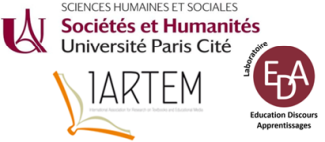Much of the contemporary discussions about sustainability education assume that changing textbooks and knowledge as the focus. However, recent research shows that students with the highest levels of 'climate awareness' can still have the highest level of ecological footprint per capita (Komatsu et al., 2019). This suggests that the problem is much deeper than knowledge, but (un)sustainability is found in ways of being (i.e, not only ways of thinking or beliefs). In line with this, our work – both theoretical and empirical – has repeatedly advanced a 'cultural approach' (Rappleye, Komatsu, Silova, 2024). However, it remains difficult for educational researchers to grasp what this might mean, and even more difficult to move beyond one's deeply embedded cultural assumptions to see the necessity of a cultural shift in achieving sustainability and the potential of our proposal. Thus, in hopes of providing concrete illustration, this presentation looks at school food education in Japan (in Japanese: shokuiku), centered around the 2005 Basic Law on Shokuiku. Japan's shokuiku shows how schooling can be about more than “cognition, knowledge, and symbolic attainment”, and a return to “food, nature, and somatic symbiosis” central to sustainability (Rappleye, Komatsu, and Nishiyama, 2024, p. 2). More philosophically, Japan's shokuiku philosophy and practice moves beyond the Cartesian mind-body split that has become the modern reinstatement of Western metaphysics. The presentation closes with a challenge to concerned scholars to go beyond the Western emphasis on cognition, rationality, and texts, and begin thinking about sustainability education in terms of pedagogies for somatic interdependence.
References
Komatsu H, Rappleye J, Silova I. (2019) Culture and the independent self: obstacles to environmental sustainability? Anthropocene 26, 100198. http://dx.doi.org/10.1016/j.ancene.2019.100198
Rappleye, J., Komatsu. H. & Nishiyama. S. (2024). School food, sustainability, and interdependence: learning from Japan's Shokuiku?, Oxford Review of Education, https://doi.org10.1080/03054985.2023.2296097
Rappleye, J., Komatsu, H., Silova, I. (2024). Re-thinking pedagogies for climate change activism: Cognitive, behaviorist, technological, or cultural?. In: Wyn, J., Cahill, H., Cuervo, H. (eds) Handbook of Children and Youth Studies. Springer, Singapore. https://doi.org/10.1007/978-981-4451-96-3_127-1

 PDF version
PDF version
